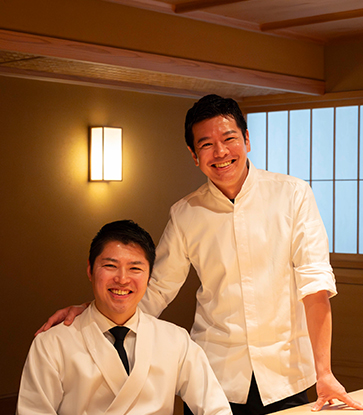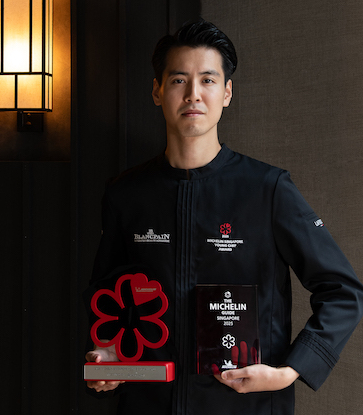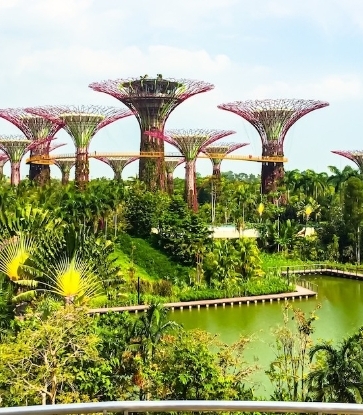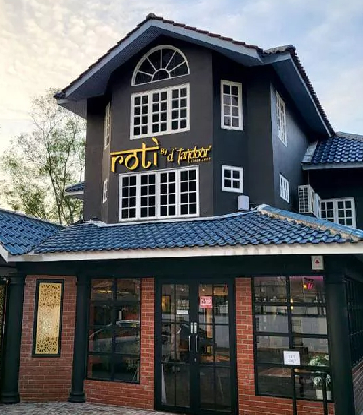Everyone in America knows the importance of Thanksgiving, Christmas and New Years. Diwali—which is an abbreviation of Deepavali, the word used to describe a row of lanterns or lamps in Sanskrit—can be described as the equivalent of all three holidays mashed-up into one. Despite the fact that most Westerners know little about Diwali, it is one of the most important holidays in India—and amongst the Indian population throughout the world.
Typically a five-day party celebrated once a year—at the end of October or the beginning of November—Diwali is commemorated with decadent feasts, an abundance of sweets, fireworks, music, dancing and elaborate dress. The holiday’s origin stems from the myth of Prince Rama saving his wife Princess Sita from the Demon King Ravana, defeating him and evil itself. While each religious group within India has a slightly different myth, or a different god triumphing over darkness, ignorance or evil in general, everyone recognises Diwali as an honoured tradition.
To better understand the importance of Diwali and how it is celebrated, we spoke to three prominent Indian chefs (one of which is the youngest to receive a Michelin star) across the United States. Here, each of them explain what the holiday means to them personally, how they celebrated it as a child—and now as an adult—what their family traditions are and whether they continue them today.

Srijith Gopinathan
Campton Place, San Francisco
Growing up in South India, we would get a week off of school for Diwali, whereas my kid [here] gets two and a half months of vacation from school—that didn’t really happen in India for me. So it’s not just the sweets or the fireworks that made Diwali so special, it was one of the only times we were “on vacation.”Now it’s a different story. Now that I have kids—and we live in America—Diwali kind of blends into Halloween. Days after having decorations up for Halloween we’re stripping off the cobwebs and monster beads and replacing them with traditional Indian lights. We typically don’t cook anything at home anymore, but we try and get a stock of good sweets from one of the Indian grocers nearby.
Back home, when I was a kid, [we celebrated the holiday] with a full meal of six to 10 dishes—mostly of which were vegetarian. It being a religious holiday with a bunch of gods involved in the story [of Diwali], we thought it was best to have it be a non-meat, non-fish kind of day. The state that I come from is Kerala (it’s located on India's tropical Malabar Coast). I like to think of it as the California of India. There’s Syrian Christians, Muslims, Hindus—whatever handful of Indian Jews that are in India are there—so it’s a melting pot of cultures and it’s more liberal than other places [in India]. This liberalness definitely affected the way that we celebrated the holiday and what we ate. There was definitely a lot of lights, fireworks and a lot of sweets.
Compared to others, my restaurant is not a traditional Indian restaurant. We define our cuisine as Cal-Indian. We incorporate a lot of California ingredients and California cooking [styles] with traditional Indian techniques and flavors. We do have a lot of Indian influence, it’s just not served like the traditional Indian dish. That said, we always try to have at least one dish dedicated to Diwali.
Floyd Cardoz
The Bombay Bread Bar, New York City
When people ask me what Diwali is, I explain to them that it’s Thanksgiving, Fourth of July and Christmas all rolled into one. I am—believe it or not—Catholic. Growing up, we did not celebrate Diwali in our home. My wife is Hindu so ever since we were married we celebrate the holiday. When I was growing up in India, even though we were Catholic, we were included in the festivities associated with the holiday. There were fireworks all over the place and people would give you gifts of sweets and dried fruits. Now, for me, it’s more about our family’s tradition of being together. Since our boys have gone off to college it’s a bit difficult [to get everyone together], but for years Diwali was about having a meal at home, doing a puja—a traditional Hindu prayer to Lakshmi, the goddess of wealth, fortune and prosperity (it’s done to bring good vibes, good luck and good fortune in the New Year)—lighting lights and blessing the home. During Diwali my wife is in control of the kitchen. She believes that its her way of giving to the family and providing generosity. I generally stay out of her way and out of her kitchen. (She likes to say that I’m not allowed in there.) One of my favorite things that she cooks is her family’s recipe for puri bhaji (the puri is a puffed up, flaky deep-fried Indian bread and the bhaji is a potato curry with tomatoes and yogurt). She always makes something with soft paneer and something with cauliflower too—mainly because I love cauliflower. For dessert my wife always makes gajar ka halwa, a dessert made from grated carrots sautéed in ghee and then cooked in milk and cream. It’s finished with pistachios, raisins and cashews. That’s something that she makes every year because it’s something that she grew up with, and it’s now become part of our [family’s] tradition.
I’ve been wanting to do something for Diwali at my restaurant for years—it’s only just come to be. We have always done something for other holidays like Christmas or Thanksgiving, even Passover, so why wouldn’t we do something to celebrate the biggest Indian festival there is? This year is the first year that we’ve done a full menu for Diwali but we hope that it will become a new tradition. It’s a way to bring focus [to the holiday] and its importance. I think more Indian restaurateurs will eventually involve Diwali in their restaurants because Indian food is finally getting where it needs to be.

Akshay Bhardwaj
Junoon, New York City
I grew up here in the United States—whereas my parents and my brother grew up in India—so I was exposed [to Diwali] through their stories. We typically cleaned out the house at the beginning of the holiday, or the day before the holiday. Everything needed to be organized, neat and orderly. My mother would spend most of the day cooking and making sweets. [After they were made], we would go and deliver these sweets to other Indian families near us that we knew were celebrating the holiday. In return, these families would come throughout the day and bring us little pastries and desserts—typically halva, a pastry made from flour, ghee and sugar. We would end the night with prayer at our house, the puja, in preparation for the next day. My mom would lay out our special clothes for the holiday—brightly colored and typically worn for weddings or any special festivity. On the actual holiday we would simply have a nice dinner, dessert and more prayer. It was a lot more tame than what happens in India, where they celebrate with fireworks and parties late into the night.
To this day I still meet up with my parents and my brother to celebrate the holiday. My father still leads the prayer service and my mom makes sure that there’s plenty of food for everyone. I wasn’t encouraged to eat sweets as a child (though they weren't strict, they were a little stingy) so Diwali is special to me because I get to indulge myself. You’re eating like it’s Thanksgiving and you get presents like it’s Christmas.
At Junoon we don’t celebrate Diwali with menu specials or anything, but we like to give our staff presents. Whether it’s a bottle of wine, or cider if they don’t drink, we like to always give them something special. My mom actually personally comes into [the restaurant] and makes little gift bags of cookies or sweets to give out to my staff.
Portrait of Akshay Bhardwaj courtesy of Junoon.
Portrait of Srijith Gopinathan courtesy of Campton Place.




















